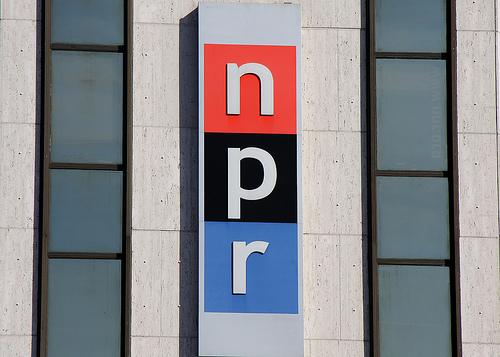The waging war between public broadcasting and Republicans has reached a peak, as networks such as PBS and NPR are fighting to stay afloat in the escalating budget debate. If funding was cut for public news media, not only would jobs be lost, but educational programs like Nova, Morning Edition, and This American Life, as well as childhood shows such as Sesame Street and Arthur, may also be eliminated – which begs the question of how to incorporate public broadcasting in an age where media is rapidly evolving.
Although public media has always been a topic Republicans have seen as liberal and unnecessary, for the first time last month, the newly controlled House approved a bill that would cut all federal funding for the Corporation for Public Broadcasting (CPB) beginning in 2013. So do we really need publicly funded networks, or is this just another battle Republicans are instigating because it’s something they don’t agree with?
There are many aspects of this issue that make these questions more complicated than a yes or no answer.
The issue of government funding for public media – in a time where our deficit is trillions of dollars – makes the problem of where to eliminate funds a complex matter. There is no doubt cuts need to be made in multiple areas, but how is Congress supposed to decide that the CPB should be the area taking the brunt of it? Just because cuts need to be made doesn’t mean the entirety of public media should be rid of. Balancing is what Congress is supposed to be doing; figuring out how to cut back on budgets without eradicating programs all together.
Although media outlets in the CPB have tried to come off government funding little by little over the years, financial support has grown over the last 10 years from $340 million in 2001 to $420 million last year, and now a proposed $451 million for the current fiscal year. Removing the entire budget from CPB funds would have varying impacts, but there is no doubt local and state networks would be impacted – anywhere from layoffs to going off air completely.
NPR currently receives 10 percent of its support from federal funding, while PBS receives 15 percent of its funding from the CPB. Although it may not seem detrimental if funding was cut altogether, the quality of programming would no doubt suffer.
However, maybe it’s time for public media to reinvent itself. Social media is taking over the world and because of that almost all other media outlets have been forced to adapt to changing standards, so why shouldn’t public broadcasting change too? Millions of dollars have recently been put toward hiring new journalists for investigative work – a start in revamping the public media outlets – but it might not be enough to keep them above water.
The lack of hard news in today’s society is where public broadcasting remains fundamental. Outlets that dominate the news media today have become more biased and opinion-based instead of informational and investigative. This could mean that if public media is forced to rely on independent sources, it might develop into what we know as traditional news media, something even more detrimental than eliminating the shows we’ve come to know.
Like everything we hear in the news today, the question of what to do regarding public news media has turned into an issue over rival parties, conservatives and liberals, and eliminations in the federal budget. But ultimately, cutting public broadcasting would have an effect on more than just these issues. Networks like PBS and NPR represent the last standing neutral media outlets, and losing them would change what we know as fundamental, educational programming.













